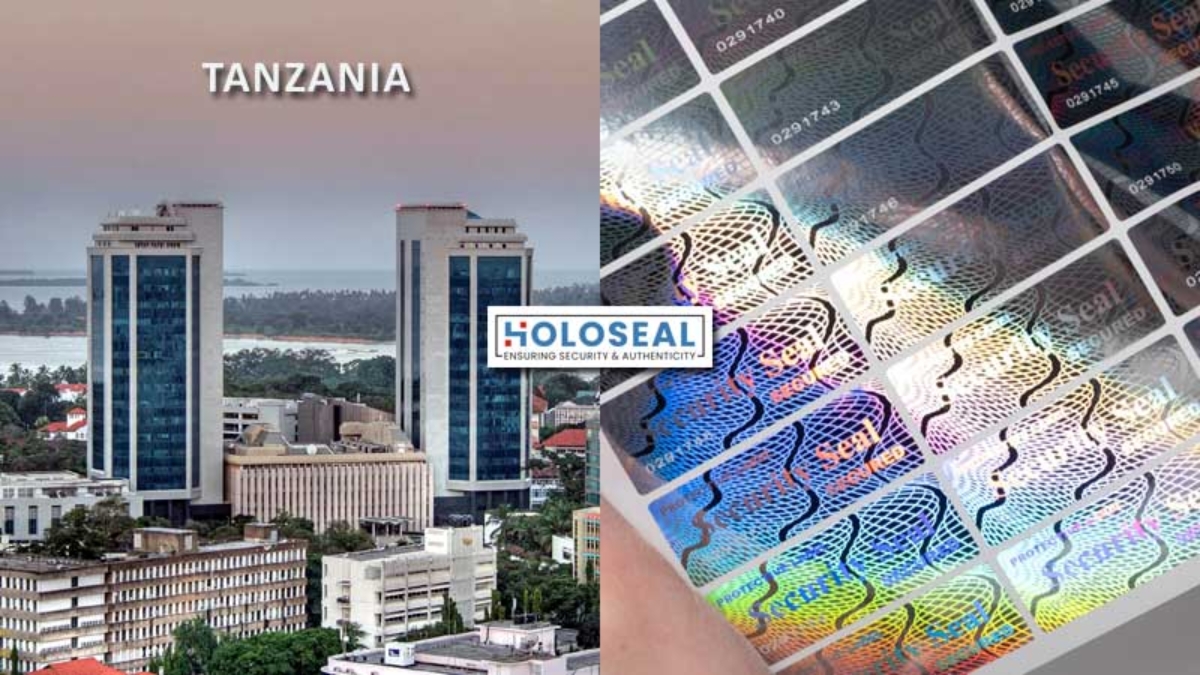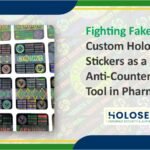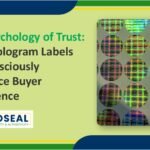Tanzania’s coffee sector is one of the country’s pillar industries, with parts of Arusha, Mbeya, and Kilimanjaro offering some of the world’s best beans. But as Tanzanian coffee demand increases internationally, so does the potential for counterfeit goods. Counterfeit coffee not only damages the local farmers’ reputation but also misleads consumers who pay a premium for genuine, quality brews. Come in the hologram sticker with QR code—a high-tech approach combining personalized holographic security stickers and electronic verification to protect this critical industry.
The Counterfeit Challenge in Tanzania’s Coffee Market
From the markets of Dar es Salaam to the countryside coffee plantations of Moshi, the penetration of counterfeit coffee products is on the rise. The counterfeits repack substandard beans, attach deceptive labels, and market them as high-quality Tanzanian coffee. This erodes the confidence of foreign buyers and puts the livelihoods of farmers in Mtwara and Songea at risk. Old-fashioned packaging and branding techniques are no longer sufficient to fight this high-tech deception.
How Hologram Stickers with QR Codes Function
A hologram sticker featuring QR code marries the aesthetic appeal of 3D hologram stickers with the potential of digital verification. The custom hologram stickers come with detailed, tamper-evident illustrations that are virtually impossible to duplicate. Inside the holographic security labels is a scannable QR code, directly connected to a verification platform. Upon scanning, purchasers, whether in Dodoma or overseas, can verify the source of the product, batch information, and authenticity within seconds.
Picture a Bukoba coffee bag with a tamper-proof hologram sticker. A consumer scans the QR code and immediately knows that the beans came from a particular cooperative, were processed on a particular date, and were exported legally. This openness not only discourages counterfeiters but also instills consumer trust.
Advantages for Tanzania’s Coffee Industry
Improved Authenticity: Glittering holographic authenticity labels indicate quality and authenticity, it being more difficult for spurious products to go undetected in cities such as Mwanza or Tanga.
Traceability: Through serial number hologram labels, each bag of coffee is traced from farm to store shelf, holding parties in the supply chain accountable.
Consumer Confidence: Global consumers who scan a QR code hologram label have reassurance that they’re purchasing genuine Tanzanian farmers’ produce.
Tamper Evidence: The tamper-evident hologram labels display any tampering efforts, safeguarding the integrity of the product.
Implementation in Tanzania
Coffee cooperatives in such areas as Iringa and Ruvuma are already turning to custom hologram sticker printing to differentiate their brands. Tanzanian hologram sticker suppliers can work with producers to create custom hologram stickers that embody the rich coffee heritage of Tanzania—perhaps the silhouette of Mount Kilimanjaro or Swahili patterns. At the same time, manufacturers can make the stickers affordable and scalable even for small-scale producers in Morogoro.
The procedure is straightforward: Coffee packs are tagged with personalized 3D hologram labels at the time of packaging. The QR code on every sticker is associated with a secure database held by the cooperative or a reputable third party. Before the product is shipped to Zanzibar’s ports or abroad, it bears an unbreakable seal of authenticity.
A Global Model for Coffee Protection
Tanzania’s use of holographic security seals may lead the way for coffee industries around the globe. Hologram printing and QR technology together combat counterfeiting, but it also adds a value perception for Tanzanian coffee. Consumers in Europe, Asia, or America will link the hologram seal sticker to quality, providing a competitive advantage to local brands.
Conclusion
The hologram sticker with QR code is more than a tag—it’s a protective cloak for Tanzania’s coffee industry. By incorporating custom holographic tags into their packaging, farmers and exporters in Arusha, Mbeya, and other places can safeguard their heritage from imitator threats. As this technology gains hold, Tanzania might be at the forefront of demonstrating how innovation protects tradition, one genuine cup at a time.
To know more about how holographic solutions can safeguard your products, click on https://holoseal.in/.




